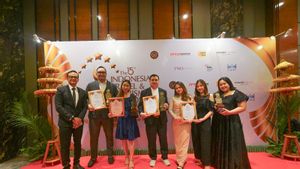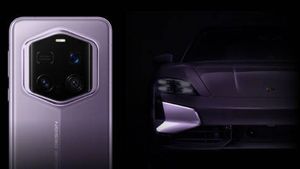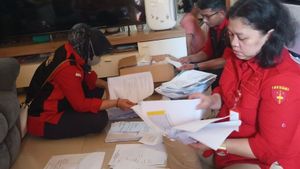JAKARTA - The DKI Jakarta Health Office (Dinkes) prohibits the public from providing sirop drugs for the consumption of sick children, both recently purchased and stored at home.
This was done in order to avoid atypical acute kidney failure that was allegedly caused by cypress ethylene glycol (EG) compounds and dietilen glycol (DEG) in several circles.
In fact, previously the Ministry of Health (Kemenkes) had released 156 types of sirop drugs that were safe for use by the public.
"To all parents for the time being, don't give medication in the form of mediation or liquid to sick children," wrote the Instagram account of the health office, quoted on Monday, November 7.
If the child is sick, the DKI Health Office recommends that parents do initial treatment to meet the needs of fluids, warm water compresses, and wear thin clothes on their children.
Then, people can use other forms of medicinal preparation, but with doctor consultations, such as tablets, capsules, or Puyer; suppositoria (anal); injection (injection); and infusion.
"However, if you have to give medicines to your child, then use drugs according to the rules of use, don't take drugs that exceed the dosage, read warnings about drugs, drugs don't expire, don't take the remaining Sirop drugs that are already open, and get drugs from licensed / official pharmaceuticals," he wrote.
Previously, Spokesperson for the Ministry of Health (Kemenkes) Mohammad Syahril said as many as 156 sirop medicinal products in Indonesia could be re-deposed and circulated in the market after being confirmed to be free from harmful compounds.
"Types of drugs that may be used, are in accordance with the recommendations of the Indonesian Food and Drug Supervisory Agency (BPOM)," said Syahril in a written statement, Monday, October 25.
The recommendation is contained in the Letter of the Acting Director General of Health Services No. SR.01.05/III/3461/2022 which was signed as of October 18, 2022, concerning Guidelines for the Use of Liquid/Corruption Medicines in Children in the context of Preventing the Improvement of KIA Cases.
Syahril said BPOM had ensured that the products listed in the list did not use the Glikol, Polyethylene Glikol, Sorbitol, Gliselin or Gliserol, and were safe as long as they were used according to usage rules.
"Health workers at health care facilities can prescribed or provide drugs in the form of liquid/sirp preparations based on the announcement from BPOM on 133 types of drugs in attachments 1 and 23 brands of drugs in attachments 2A," said Syahril.
The English, Chinese, Japanese, Arabic, and French versions are automatically generated by the AI. So there may still be inaccuracies in translating, please always see Indonesian as our main language. (system supported by DigitalSiber.id)
Tags les plus populaires
#Prabowo Subianto #Nouvel An #Syrie #nataru #NatalPopulaire
19 Desember 2024, 05:00
19 Desember 2024, 06:15













